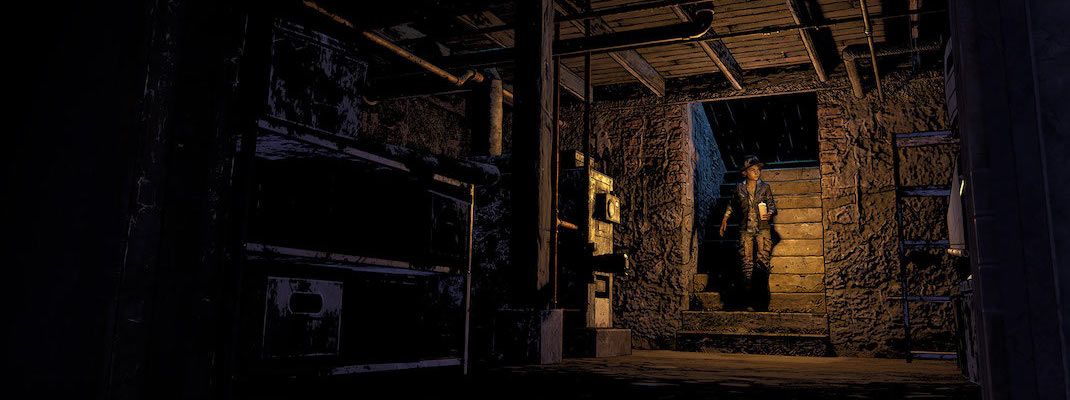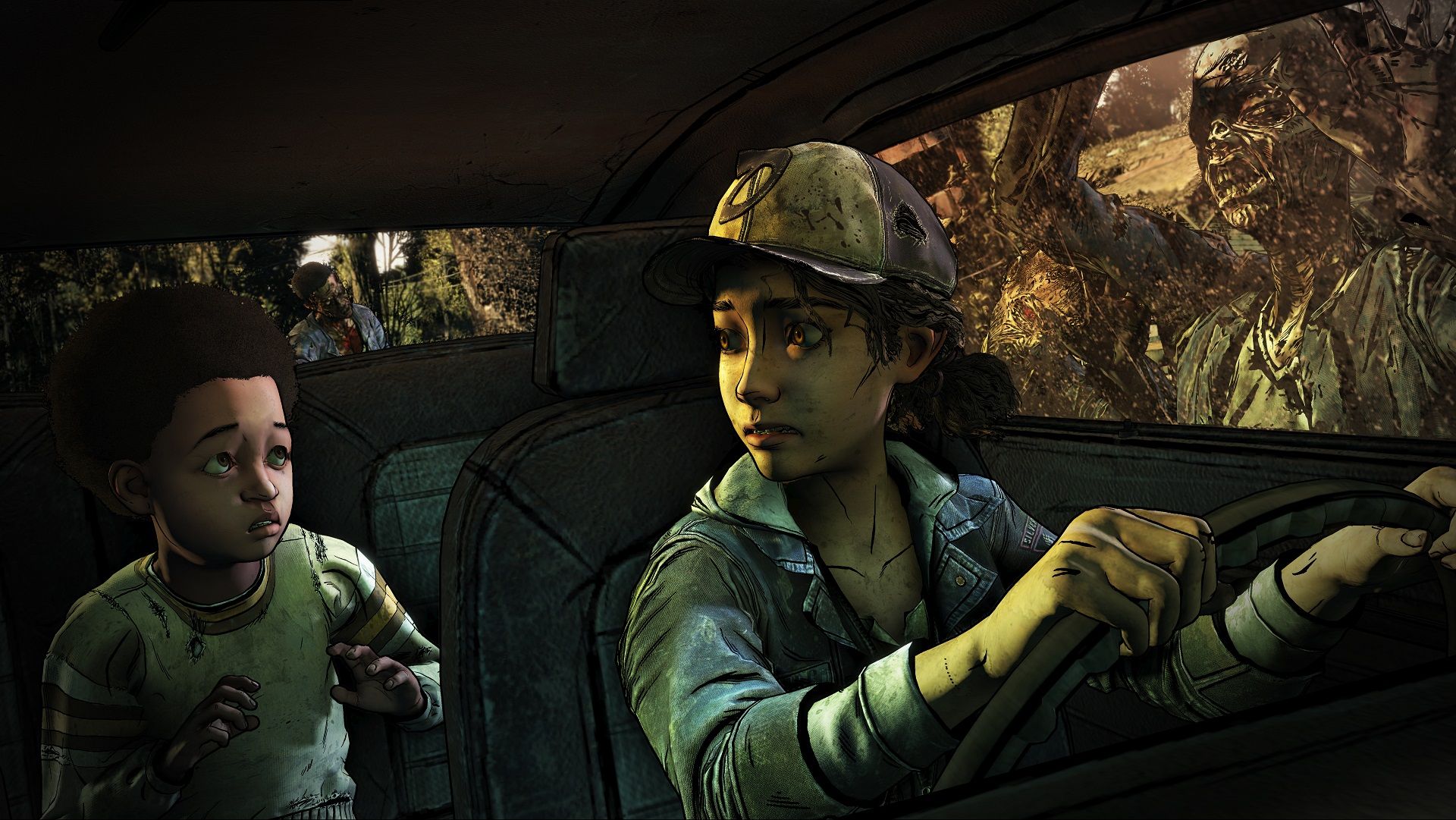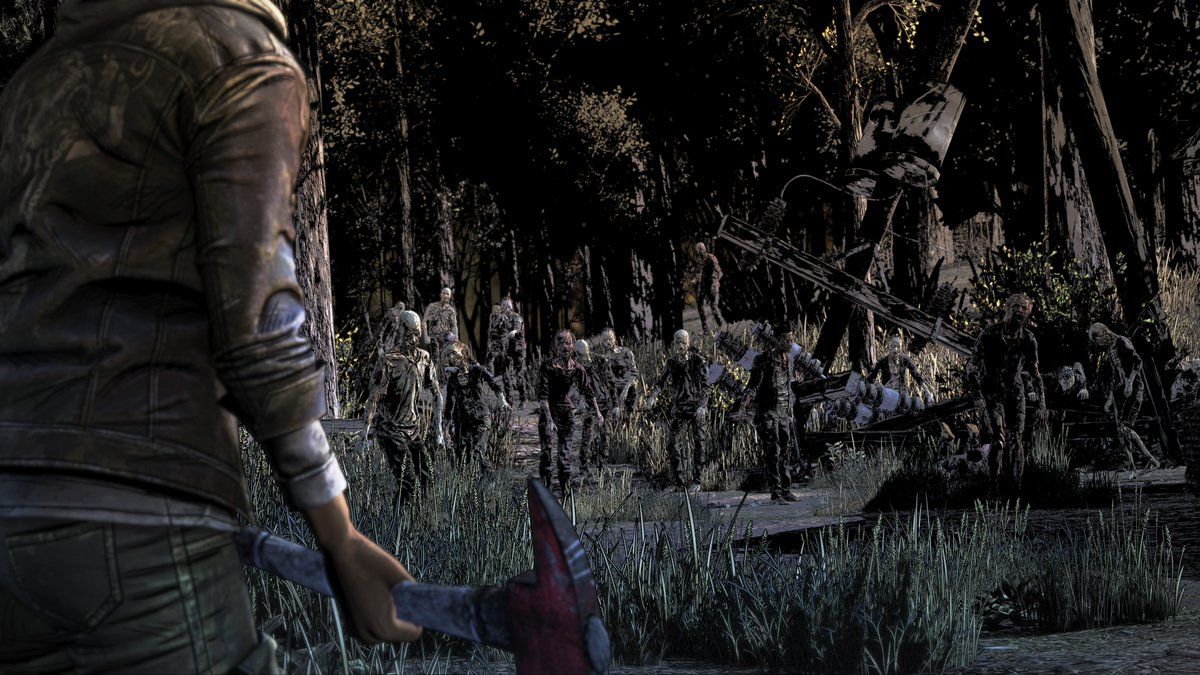Back in mid-2017, Telltale Games revealed three new projects that the team was slated to be working on in the upcoming future: a second Batman season, a second The Wolf Among Us season and the fourth and final season of The Walking Dead. While the first of these three projects was finished to completion in early 2018, some shocking news would bring the development of these and other future projects from Telltale to a halt: in September 2018, Telltale Games revealed that they would be shutting down their and cancelling all future projects. Undeniably heartbreaking to the people working there and the fans that were eager to play these future projects, it was hard to ignore the suffering of those involved with Telltale’s Walking Dead adaptation. The fourth and final season had already seen two of its four planned episodes released, which left an unfinished story even more tantalizingly close to its conclusion. Fortunately, Skybound Entertainment stepped in two months after Telltale’s closure to wrap up Clementine’s journey, bringing in many former Telltale members to help ensure that the story saw a fitting end. Now, seven months after the first episode, the fourth season of The Walking Dead is complete, and despite some advancements to the gameplay and presentation, and an engrossing relationship between Clementine and AJ, a lackluster cast and often-directionless story prevents the final season of Clementine’s journey from being truly memorable.
This review will only address minor spoilers from the early sequences of the season. For more detailed looks at each of the individual episodes, check out our reviews of “Done Running”, “Suffer the Children”, “Broken Toys” and “Take Us Back.”
The first episode kicks off a few years after the conclusion of the third season, as Clementine has reunited with AJ and begun to care for him as if he were her own, teaching him how to survive in this harsh reality. The choices Clementine make and the conversations she has that shape AJ’s future end up being some of the most prominent and meaningful decisions of the whole series, as seeing AJ come to grasp with the complicated nature of interacting with the living, the dead and the undead all shape his evolution throughout the season. Unfortunately, the rest of the cast does little to help keep events interesting, as the newly-introduced school kids range from generic to boring and the shuffling antagonists don’t draw the same attention as the primary focus on villains in the previous seasons. For most of the season, the plot shambles around aimlessly and even the significant final moments feel indecisive despite attempting to wrap up the nearly seven year journey.
Fortunately, the gameplay of The Walking Dead’s fourth season has seen some relatively minor but important improvements that help make the moments between the story more interactive. The camera perspective has been shifted to a more traditional over-the-shoulder angle, which makes the environmental exploration more intimate, particularly considering the welcome addition of collectibles. The combat is more involved as a result of this camera shift as well, as Clementine’s height forces her to choose between stunning or going for the time-consuming kill, while the additions of environmental traps and bow and arrows keep battles between humans or the undead fresh and stressful. The puzzles and quicktime events remain a prominent part of Clementine’s journey, while largely unaltered, but this change in perspective brings about one of the biggest changes to Telltale’s stereotypically stale style of gameplay, and it’s a shame that this was unable to be incorporated into some of the studio’s other franchises before their shutdown.
The altered camera also brings a renewed sense of drama to Clementine’s tale, as the improved graphics bring a greater sense of realism to the apocalyptic world while still keeping that Telltale flair. The soundtrack strays from chaotic to emotional depending on the scene, and the voice cast continues to remain a priority for Telltale, with Melissa Hutchison and Taylor Parks being the standouts throughout the season as Clementine and AJ, respectively. With the larger cast, Telltale borrows a page from Batman’s playbook and makes relationships as important as plot and dialogue choices, adding to the higher stakes and replayability of the fourth season. Fortunately, for those without access to a local save file, Telltale has added an option for players to create a backstory for Clementine, making it accessible for newcomers and veterans alike.
Closing Comments:
The concluding chapters of Clementine’s journey remains as emotional and stressful as ever, but rarely feels purposeful enough to be a worthwhile finale for longtime fans. The key improvements to the gameplay and presentation sets them at an all-time high for the series, and the path AJ takes as a result of Clementine’s choices is truly impactful, but they are hindered by a lackluster cast and a meandering story that pales in comparison to previous seasons. While the real-life series of events that needed to occur for Clementine’s story to see its finale are certainly worth appreciating, it is unfortunate to see such a lengthy adventure end on such an uninspired note.



